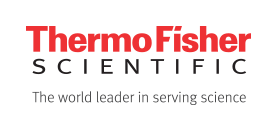Polychlorinated biphenyls (PCBs) and polyaromatic hydrocarbons (PAHs) are toxic organic compounds that can contaminate soils, air, sediments and water as a result of natural and anthropogenic processes. PCBs and PAHs are resistant to environmental degradation and can be transported over long distances. Moreover, due to their lipophilicity these chemicals can undergo biomagnification and accumulation in the food chain and can cause a significant risk to human and wildlife populations. Their toxicity at very low concentrations means that countries and corporations are legally obliged to monitor for their presence in the environment so that the risk of uptake of these compounds into to the food chain and subsequently into human populations is minimized. PCBs and PAHs are usually analyzed by gas chromatography (GC) coupled to mass spectrometry (MS).
Read more
▼
The major challenges for the analysis of PAHs and PCBs are the requirement for tedious time-consuming manual sample preparation, long chromatographic separations and ultimately low sample throughput and high cost of analysis. In order to better characterise an environmental sample, quite often multiple methods are employed for both the sample preparation and GC-MS analysis of these compounds. This requires multiple analysis of the same sample which increases both the requirement for labor, instrumentation and ultimately this increases the cost per sample. In this webinar we discuss a consolidated method for the automated, rapid and cost-effective analysis of PAHs and PCBs in solid environmental samples. Several extraction techniques were assessed including QuEChERs and an automated solvent extraction and clean up. All analyses were performed using the Thermo Scientific™ ISQ™ 7000 GC-MS system. Moreover, by means of only one software the analyst can control and automate sample preparation, data acquisition, processing and reporting with the aid of the Thermo Scientific™ Chromeleon™ Chromatography Data System (CDS).
Sponsored by:

-
Speakers
▼
Aaron Lamb,
Senior Marketing applications specialist,
Thermo Fisher Scientific
Chris Rattray,
Senior Scientist, GC Solutions,
Restek
Stu Borman,
Contributing Senior Editor,
C&EN Media Group